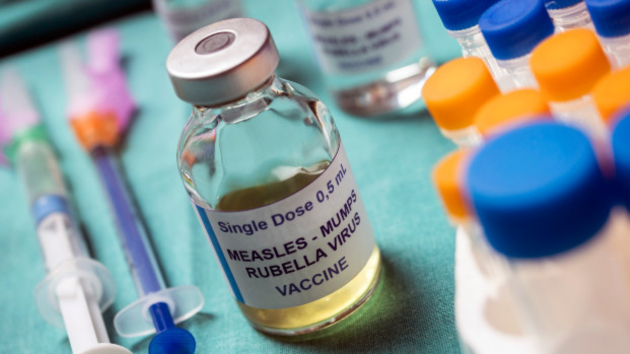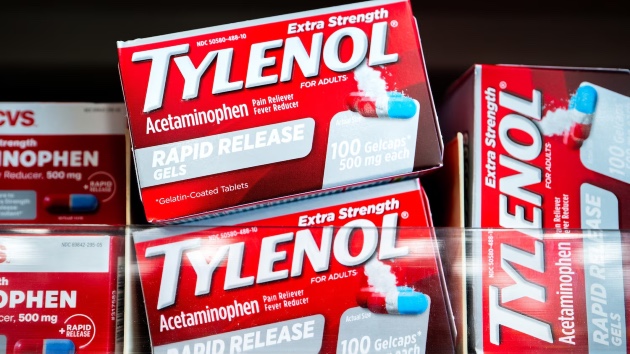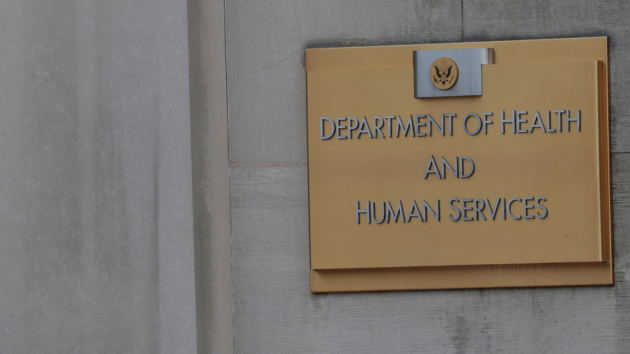‘Invisible’ heat wave risks need more attention as temperatures rise, expert says
Written by ABC Audio ALL RIGHTS RESERVED on July 18, 2023

(NEW YORK) — Millions of people are dealing with extreme heat waves as climate change continues to raise temperatures to unhealthy levels.
Jeff Goodell, a climate journalist, published a new book The Heat Will Kill You First: Life and Death on a Scorched Planet, that examines how damaging the increased heat waves are for people’s health. Goodell warned that people need to be cautious about their activities during the high heat days.
He spoke with ABC News’ “Start Here” podcast Tuesday about the heat and what can be done to mitigate the damage.
START HERE: Thanks for being with us, Jeff. I’m wondering, like in your mind when we talk about climate change, is heat just by itself, heat the single most affecting part of that whole picture? That’s the thing that actually hits will hit the human race the hardest.
JEFF GOODELL: Well, I think it’s very clear that when it comes to your own health risk and to your own life, heat is by far the most dangerous impact of climate change. Heat kills far more people than drought and wildfires. My previous book was about sea level rise. And, sea level rise is really important because it impacts every coastal city in the world and it’s going to have huge impacts on real estate and flooding and things like that.
But nobody stands on Miami Beach and drowns because of sea level rise. It’s happening over a longer period of time. The thing about heat is that it can kill you very quickly.
But it’s also the larger warming of the planet that is causing the glaciers to melt, is causing the sea level rise that’s drying out the forests that are causing hotter, bigger wildfires. It’s changing the precipitation patterns because of the changes in the atmosphere.
So, it is the large scale driver of all these big changes, and it’s also the micro killer –invisible force that is most deadly to you as a person.
START HERE: Well, and so I’ve been wondering lately, is all temperature change relative? If you’re used to living in 60 degree weather and then at 70 degrees, you’re undergoing the same amount of change that somebody who lives in 95 degree weather and now it’s 105 [degrees] all the time. Is that the same difference or is there a level — is there a threshold at which the air temperature becomes profoundly more dangerous for people?
GOODELL: Well, I mean, there has been some speculation [and] some papers written about this, about what is the sort of human threshold for heat. And there’s the idea of what’s called a wet bulb temperature, which is a measurement kind of like a complicated heat index that was developed by the military that includes sunlight and wind speed and enclosure wearing and everything.
A wet bulb temperature of 95 degrees…you can basically think of it as a sunny, humid day at 95 degrees. If you are out in that for very long and do any kind of exercise or movement around your, you will rapidly head into heat stroke land.
In my book, I write about a farm worker in Oregon who died in the fields because he was afraid if he took shade and water breaks, he would be fired. The thing about these heat waves is that there’s a real kind of justice and equity issue involved here. Not just here in the United States, but there are billions of people on this planet who do not have access to air conditioning and will not have access to air conditioning anytime soon.
The last point about I’ll make about the air conditioning is that it’s a false sense of security because I’m here right now talking to you in Austin and it’s 106 degrees right now. If there were a power failure in Austin right now and that power failure lasted for very long, hundreds, if not thousands of people would die because they would lose air conditioning all of a sudden. We’ve built many of our houses without the ability to open windows.
They are all sealed up very tight, and they become like convection ovens without mechanical air conditioning. So, you know, there’s an inevitability that that kind of power failure is going to happen on a grid in a major American city during one of these heat waves.
START HERE: Well, and in fact, you’ve described your book is like it’s not just doomerism, it’s a survival guide for this new era that we’re all inhabiting right now. I mean, if we’re looking for survival tips. And I’m serious, are there practical things that we should be doing? Not just like write your congressmen and like try to get less CO2. Like, are there things we should be doing preparing ourselves for to get by in a much hotter, hotter world?
GOODELL: Well, again, just to stress the obvious and to repeat the obvious, cutting fossil fuel emissions as quickly as possible is the first order of business in any kind of thinking about what to do about extreme heat. But, on a more practical level, it’s, you know, getting smart about the risks of heat.
I didn’t understand the risk before I started writing this book, even though I have been writing about climate change for almost a decade. I was really dumb about it. I came close to having a heat stroke myself. I didn’t understand what was happening. People don’t understand how dangerous heat is and how and how to deal with it. For example, one of the myths is that if you drink enough water, you’ll be fine. That’s not true.
Water does not in itself cool you off or cools you off. Is it the sweat? And yes, you need to have water in you so you can continue sweating. And if you get dehydrated, you can’t sweat. But there are many stories and I write about them in my book of people who die of heat stroke and have plenty of water. It’s just that they’re in conditions where they’re exercising, hiking, walking, working, whatever, in hot conditions and their bodies overcome by heat.
START HERE: So literally thinking differently about exertion, where you live and what these heat extremes are doing now.
GOODELL: Exactly. And there’s a lot to be done with checking in on vulnerable people. A lot of heat deaths can be easily avoided by better education about heat, about ranking heat waves..so that we know the severity of them because they’re invisible. We don’t see them. They’re not like hurricanes where you can you see the trees bending in half. The risks are very visible. With heat, they’re not.
So we need to get a lot better about messaging about it than the media and government officials, public health officials. There are initiatives underway to try to name heat waves to make it more tangible to people’s imaginations and more identifiable. You know what the risks are. Simple things like, calling relatives, friends, people who you think might be vulnerable and saying, “Hey, it’s going to be really hot tomorrow. Are you set? Is your air conditioning working or if you don’t have air conditioning, do you know where to go?” There’s a lot of just simple things like that that can be done.
START HERE: It’s almost against speaking to your idea of like, these are just like storms, but they’re more invisible. My mom, like, gets like annoyingly, she calls me whenever she thinks there’s a snow flurry on the way. Yes. You want to do that for a huge heat wave. Like that’s the difference.
GOODELL: Right. And the media plays into this. Whenever there’s a heat warnings or whatever they show pictures of people at the beach and they show pictures of kids running through sprinklers and things like that. And there’s this notion that, you know, yeah, it’s going to be warm, but it’s not really dangerous. And, you know, just like put a hat on and put on sunscreen and drink plenty of water and you’ll be fine. Well, you won’t be fine. And it’s much more dangerous than that.
As these temperatures climb and climb and climb, these risks grow faster and faster and they become more urgent. And, I opened my book with the story of a family in California. They went for a hike on a warm day in the California foothills. And the next day they were all found dead on the trail, including their tragically, their one-year-old daughter, because they all had heatstroke.
They knew they were experienced hikers. They understood the risk, but they miscalculated. And those kinds of questions in this kind of education about this is just going to become more and more and more important as we get hotter and hotter and hotter.
START HERE: Yeah. And I keep going back to 95 degrees and humid, being like this moment where the cellularly your body starts to react differently. It was this past Friday that it was 95 degrees and muggy. I went out for what I thought was a healthy bike ride. I hydrated myself really well throughout the day, and yet hours and hours later, my wife is like, You don’t look well. Like, this was bad for your health. That’s the sort of decision making that you think will be changing, whether we like it or not.
Copyright © 2023, ABC Audio. All rights reserved.
 KVSP
KVSP 




